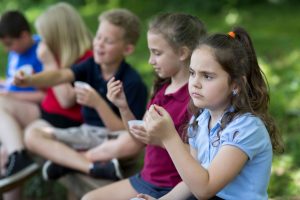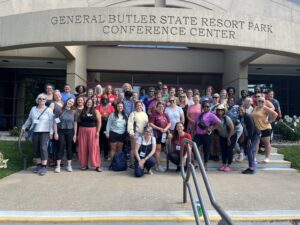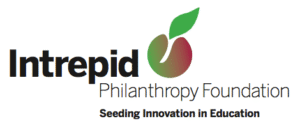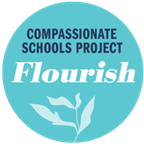Posted at 18:47h
in
2024,
General News
Alexis Harris presented at the most important prevention science conference—the Society for Prevention Research (SPR) Annual Meeting in Washington DC, May 28-31, 2024.
Findings presented suggest promise in the Compassionate Schools Project and the approach it represents for helping promote SEL and aligned mindfulness and compassion skills, as well as the positive impact on important behavioral characteristics such as efficacy for social problem solving and attentional control, especially in the context of high poverty.
Alexis is the CSP Project Director and Research Assistant Professor at the University of Virginia School of Education and Human Development.
POSTER ABSTRACT
Introduction:
There is a pressing need to support youth wellbeing, emphasizing the importance of universal prevention efforts in schools (U.S. Department of Education, 2021). To address this need, the Compassionate Schools Project (CSP) tested a universal elementary school wellness curriculum called Flourish that integrates social and emotional skills, mindful awareness and compassion, mindful movement, and mindsets and habits for lifelong health. Through an innovative partnership model involving university researchers/intervention developers, civic leaders, a large public school district, and various philanthropic supporters, researchers conducted a five-year longitudinal randomized control trial of Flourish. The curriculum and professional learning were intentionally grounded in mindfulness and compassion and connected with a city-wide aspiration to engage citizens in building a more compassionate community.
Methods:
The large RCT involved 45 elementary schools and over 4700 students randomly selected from schools located in a mid-sized US city and the surrounding area that serves an economically and ethnically diverse population. The sample of students was followed through two years of CSP implementation or the existing health and physical education curriculum and two years of post-formal implementation. By comparing growth over four years of time, we tested for the effect of assignment of school to CSP implementation on growth of a set of child social and emotional skills, attentional control (evidence of executive function), compassion and behavior and adjustment in school (emotional and behavioral problems, prosocial behavior, and academic engagement). We also tested for moderation of growth differences by condition by school poverty level, grade of students at outset of exposure, and student gender. Inferential analyses were based on 3-level longitudinal hierarchical linear models (HLM).
Results:
The partnership resulted in the successful continuation of the program in many of the study schools and was initiated in new schools after the research was concluded. Preliminary results of the analyses show that Flourish has significant benefits for students—including efficacy for managing social conflicts, improved classroom behavior, and increased ability to focus attention. In addition, preliminary results suggest that benefits are most evident in schools serving students from high poverty communities.
Conclusions:
These findings suggest promise in this program and the approach it represents for helping promote SEL and aligned mindfulness and compassion skills, as well as the positive impact on important behavioral characteristics such as efficacy for social problem solving and attentional control, especially in the context of high poverty.
https://drive.google.com/file/d/1zFXoElmqEpg2dZEnA52vBRZn2T1iaJCz/view




















